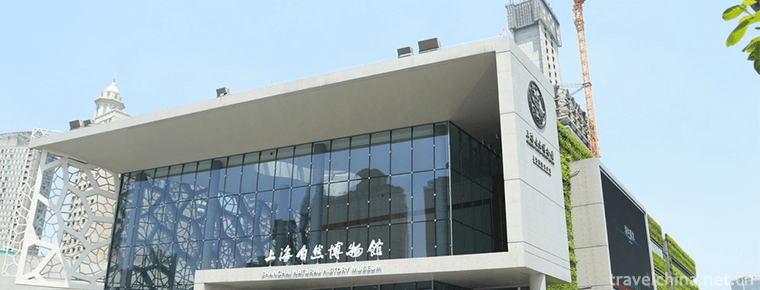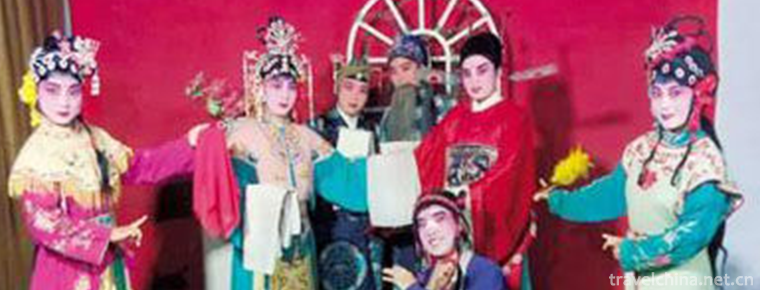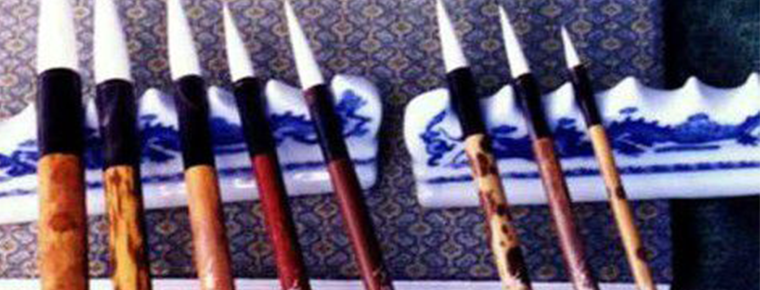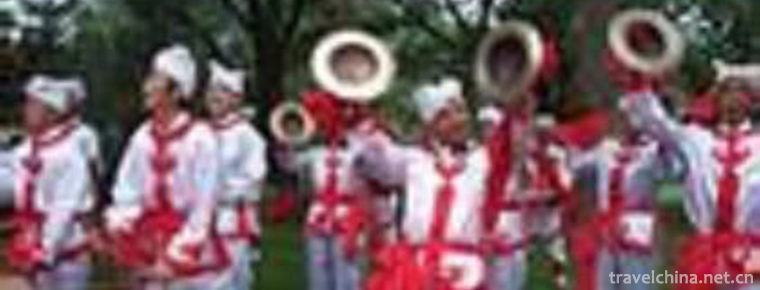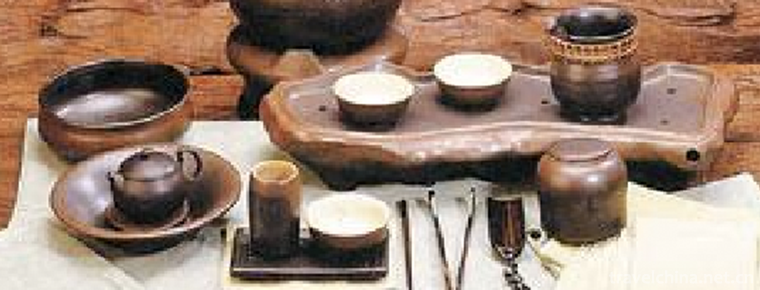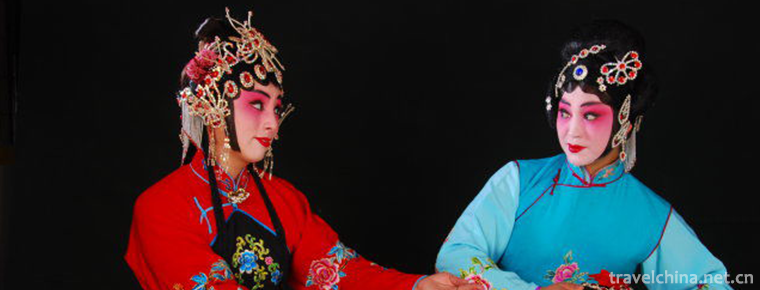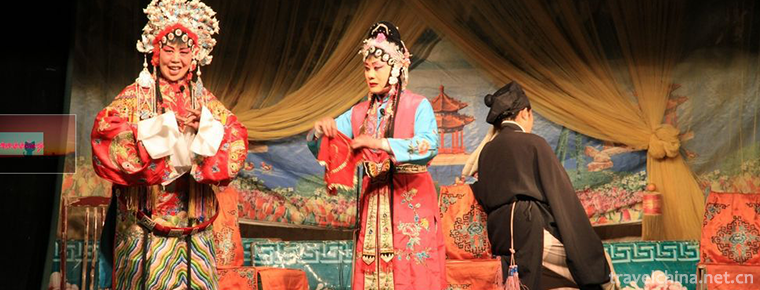Shangdong clapper opera
Shangdong clapper opera
Shandong Bangzi is a traditional local opera popular in Southwest Shandong and Central Shandong. Also known as "high-profile Bangzi", short for "high-profile" or "high-profile Bangzi". Because of its high and exciting characteristics, it is known as the "sacrificial Bangzi chamber". Mainly popular in Heze, Jining, Tai'an and other counties and cities in southwestern Shandong, as well as Liaocheng, Linyi and other areas of the vast number of towns and villages. Because of the different epidemic areas, people call them differently. For example, Heze as the center, commonly known as "Caozhou Bangzi"; Jining, Wenshang as the center, known as "Wenshangbangzi" or "downward tone", the general term "high-profile", in order to distinguish from the popular "Daping Diao" in Southwest Shandong. In 1952, it was named Shandong Bangzi.
On June 7, 2008, Shandong Bangzi was approved by the State Council to be included in the second batch of national intangible cultural heritage list.
A Brief History of Plays
Historical Spread
Shandong is one of the main channels of trade and transportation in the past dynasties. Shanxi came to Shandong early to do business. Jining, Heze and Liaocheng had large-scale Shanxi guildhalls in the Ming Dynasty. These Shanxi businessmen, who run pawnbroking and banking industries, have strong economic strength in Shandong Province. They have settled in Shandong for a long time. In this situation, Shanxi operas and banners naturally flowed into the Southwest Shandong Province. In many plays, Shanxi businessmen also reflected that Shanxi businessmen went to Southwest Shandong and other places at that time. The situation of doing business. Such as "Strange Mistake" and "Changing Wives". Therefore, Xibang, one of the four ancient operas, was influenced by local culture, dialects and customs, as well as local and other forms of opera after it was first introduced to Jining and Heze in Southwest Shandong Province. It will naturally gradually evolve into today's Shandong Bangzi.
According to the Qing Dynasty Qianlong (1736 - 1795) Yan Changming's "Qin Yun Picking Ying Xiaopu" contained: "After the courtyard, as Manchuo, as a string... The chord flows north... Shaanxi People's Song is called Qin Opera. As for Yan, Jing, Qi, Jin and Zhongzhou, although their pronunciation has been changed gradually, that is to say, the pronunciation of those close to their native land has changed little. Qi refers to Shandong. According to Wu Changyuan's Yanlan Pedigree published in the fiftieth year of Qianlong Dynasty, Yu Yongting (Mohist) and Meng Jiule (Licheng) are Shandong people. Among them, Meng Jiu'er Li Dachun Department "acted as Princess Hundred Flowers, the end of military uniforms, beautiful in quite heroic spirit... Other miscellaneous departments are Bangzi tunes, mostly Beijing Ban factions." In the attached poems, there are also the sentences of "Zheng Ruan tunes high, frog leaks fast, and treads on the rocking mother's bitter moonlight at three shifts". It is known that Zheng, Ruan and other plucked instruments were accompanied at that time. The so-called "Bangzi Tune" of the "Beijing Ban School" is mostly Shanshan Bangzi. According to the article "Jin Qinger" in the short history of Liuqing Pavilion published in the fifteenth year of Jiaqing (1810): "Jin Ming Yuanqing, Zijuren and Zixiuqing, Shandong Yanzhou people (Dashun part)." The attached poem says: "Qi Yun does not sing the Qin voice, but is timid about the jade throat and the jade Zheng." After Shandong artists entered Beijing, they did not sing "Qi Yun" but instead sang Shan-Shan Bangzi. They also used plucked instruments (Zheng) to accompany them. The accompaniment instruments mentioned in the two books are also consistent with the early accompaniment of Shandong Bangzi with big strings (Baleng Yueqin).
The above written materials can prove that local Bangzi existed in Shandong Province at the latest in Qianlong period, and some Shandong actors came to Beijing to perform. This point is close to the time when Shandong Bangzi veteran artists recount.
According to the textual research, the high-profile old class "Wufu Ban" of Jining Caishen Pavilion was founded by Li Hanlin before the Ming Dynasty Wanli Emperor ascended the throne (1573). It has a history of more than 400 years. In order to confirm this history, the Shandong Opera Research Institute visited Duan Guangcai, an old Shandong Bangzi artist, in 1957, who was born in 1889. He said, "Listen to my teacher Zhang Enpu (Jining people, Huafa). The high-profile Five-Fu Ban of Jining Caishen Pavilion was founded by Li Hanlin before Emperor Wanli ascended the throne in the Ming Dynasty. It has a history of more than 380 years. This class has collapsed. Fifty or sixty years. According to Yao Baoren, the last generation of Yao Ban in Juye Dayao, Yao Ban was founded in the Qing Dynasty. Yao Kongchuo is the first generation to inherit, and I am the ninth generation. Yao Ban has a history of more than 280 years. By synthesizing other data, we can see that Shandong Bangzi was quite popular in the early Qing Dynasty, and its emergence can be traced back to the late Ming Dynasty.
It can be seen that up to now, there are over 300 years of high-profile Wufu classes in the Fushen Pavilion in Dongmen of Jining, Dacao Ban in Wenshang County, Chongshengfu Ban in Chongsheng County, Tianjia Ban and Dayao Ban in Juye County. Their activities cover Heze and Jining areas, as well as many towns and countryside in Tai'an, Liaocheng and Linyi areas. In the past, many professional classes and famous actors often went to the east of Henan, north of Jiangsu, north of Anhui and south of Hebei for mobile performances.
Shandong Bangzi had no actresses. Around the 26th year of Guangxu (1900), the first batch of actresses appeared, such as Xiao Lenger (Dan) and Xiao Jinger (Dan) in the "Women's Class" of Juye County, which were popular actresses. Since then, other classes have also absorbed actresses to play Danxing. The more famous ones are Wang Delan, Green Big Coat, Red Big Coat (Xiaohuan), Li Cuixi of Confucius Class in Juye County, Wu Taiyun of Xuanlou Class in Wenshang County, Dajin of Shenzhuang in Juxian County, among which Dajin can sing Black Face. Wang Shaoming (Red Face, Black Face) and Sun Zhiping (Dan) produced a record labeled "Shandong Bangzi" in Shanghai Baidai Company.
At the same time, some Shandong Bangzi artists have performed in other provinces, such as Wei Er (Red Face), Wu Wu (Xiaosheng), Li Erhexin (Black Face), Tang Jingong (Artistic Name Santo, Dan), Zhang Keming (Artistic Name One Onion, Dan) and so on. They have performed in Jiangsu, Henan and other places. Until around 1930, the eastern part of Henan Province (including Kaifeng) often visited Southwest Shandong to invite the corner. At that time, the more outstanding actors were Wang Xitang (Osmanthus fragrans oil, Cao County Cao Jiaban out of the family, Qingyi Huadan), Liu Derun (Red Face King), Huang Ruxiu (artistic name Huangwa, Dingtao County East Sanyitang out of the family, Wenwu Xiaosheng), Sun Zigao (Sun San, Cao County Cao Jiaban out of the family, black face), Zhao Yiting (Cao County Fire Shentaiban out of the family, Xiaosheng), Cui Yunfang (female) and so on. However, during this period, Henan Bangzi (Henan Opera) rose up, while the development of Shandong Bangzi was hindered by years of war and social unrest in southwestern Shandong. By the early 1940s, some Henan Bangzi actors, such as Li Jin'e, Xu Fengyun, Chen Suhua and Ma Jinfeng, had performed in Heze area. Hence, Shandong Bangzi's singing was influenced by Henan Bangzi. According to the investigation of Shandong Cultural Bureau Opera Working Group in 1953, 43 Bangzi Opera Troupes in Shandong Province absorbed many elements of Western Henan tune, which enriched Shandong Bangzi's singing.
Modern Evolution
In the early days of the founding of the People's Republic of China, there were still many professional theatre troupes in the province. Amateur theatre troupes are also common. There are more than 100 amateur theatre troupes in Heze County alone. According to the statistics of the Opera Working Group of Shandong Cultural Bureau in 1953, there are 43 Bangzi Opera Troupes in Shandong Province. In 1958, Shandong Cultural Bureau organized "Shandong Bangzi Opera Task Force" to excavate and sort out Shandong Bangzi traditional operas, singing tunes and music plates. In the same year, based on the People's Theatre Troupe of Heze Special Administration and mobilizing famous old artists such as Dou Chaoyong and Lu Shengkui from Jining area, Shandong Bangzi Theatre Troupe was established in Jinan. Shandong Opera School has also established Bangzi Section. Through sorting out traditional plays and creating modern plays, on the basis of inheriting the tradition, there are some reforms and innovations in singing, performing and music accompaniment.
In 1960, when Shandong Bangzi Theatre troupe came to Beijing to report on its performances, such dramas as The Tale of the Wall, Wanjiaxiang, Jade Tiger Fall and Lianglangshan were well received. Since then, he has compiled and performed a number of modern plays, such as "Three Back Boats", "Frontier Families", "Lao Wang Selling Melons", "Iron Mahongtu", "Liuxia Family" and so on.
In 1982, during the Shandong Drama Performance Month, the provincial Bangzi Theatre Troupe performed "Cheng Bian Jin Recruitment for Parents" and won the Excellent Screenplay Creation Award, Director Award, Music Design Award, Band Accompaniment Award, and the main actors in the play won the Performance Award. By 1983, in addition to Shandong Bangzi Opera Troupe, there were still professional troupes touring Liangshan, Yuncheng, Juye, Taian, Feicheng, Xintai, Qufu and Jiaxiang.
Shandong Bangzi, which has been sung for more than 300 years, has now become an "endangered species". By 2005, there were only three theatre troupes in the province, namely, Shandong Bangzi Theater Troupe of Tai'an City, Shandong Bangzi Theater Troupe of Heze Local Theater Academy and Shandong Bangzi Theater Troupe of Yuncheng City.
In 2006, Shandong Province launched the declaration of provincial intangible cultural heritage. Shandong Bangzi was successfully selected as the first provincial intangible cultural heritage list, which injected new hope into the revival of this ancient opera art.
In 2007, under the influence of intangible cultural heritage, the Party and the government attached great importance to the development of Shandong Bangzi and restarted and restored it. There are professional theatre troupes in Tai'an City, Shandong Bangzi Troupe in Jining City, Shandong Bangzi Troupe in Heze City, Shandong Bangzi Troupe in Wenshang County, Shandong Bangzi Troupe in Hancheng County, Shandong Bangzi Troupe in Juye County, etc. Wulanxiang, Li Hong, Liu Taihua of Wenshang Bangzi Opera Troupe in Wenshan County and Liu Xiuyun of Juye Shandong Bangzi Opera Troupe were selected as finalists of the National Red Plum Flower Opera Competition and won the Golden Flower Prize. In December 2007, Shandong Bangzi Professional Committee was established to revitalize the opera.
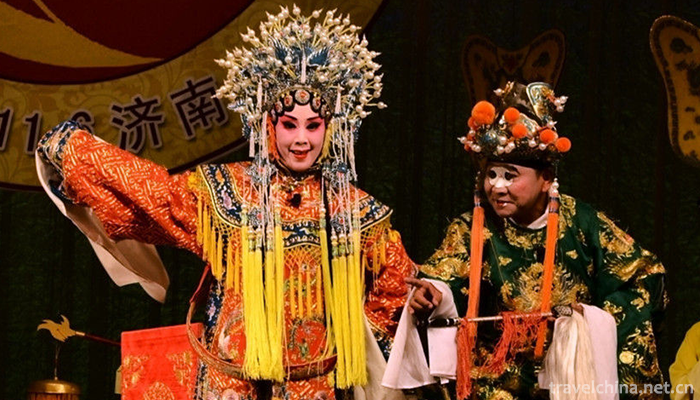
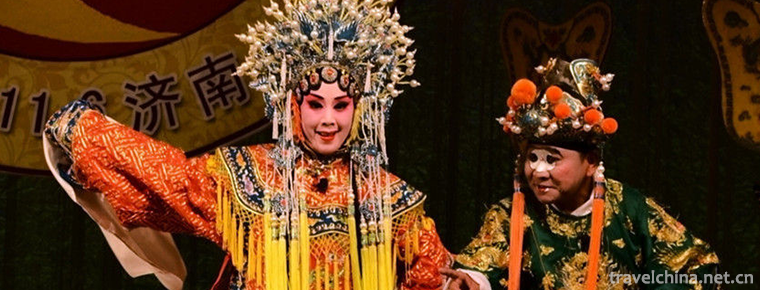
Shangdong clapper opera
-
Shanghai Museum of Natural History
The Shanghai Museum of Nature (Shanghai Science and Technology Museum Natural Branch) is one of the largest natural museums in China. Located in the center of Shanghai, Address: 260 Yan'an East Road,
Views: 384 Time 2018-12-15 -
Mingshan Scenic Area
Famous Mountain Scenic Area is located on the beautiful bank of Heilongjiang Province, across the river from the Russian Jewish Autonomous Prefecture
Views: 233 Time 2019-02-07 -
Traditional flower arrangement
Chinese traditional flower arrangement art has a long history, extensive and profound, is the representative of Oriental flower arrangement art. It has the characteristics of dignified and elegant mod
Views: 132 Time 2019-04-19 -
Haha Opera
Haha Opera, also known as Liuzi Opera and Drinking Opera, is a local opera originated from the folk in Hebei Province. It is the first national intangible cultural heritage
Views: 232 Time 2019-05-02 -
Craftsmanship of Lake Pen
Hubi craftsmanship, the traditional handicraft of Shanlian Town, Huzhou City, Zhejiang Province, is one of the national intangible cultural heritage.
Views: 223 Time 2019-05-03 -
Mamuteyi Ma mu te yi
Mamuteyi, translated into Chinese as Education Classic, is the product of the slavery society of the Yi people in Liangshan. In the Yi language, "Ma" means education, instruction and persuas
Views: 154 Time 2019-05-16 -
Daoism in Northern Shaanxi
As one of the traditional folk songs in northern Shaanxi, Daoqing in northern Shaanxi was originally called "Qingjian Daoqing". Later, because "Longdong Daoqing" and "Shenchi
Views: 181 Time 2019-06-13 -
Production Techniques of Oolong Tea
Oolong tea production technology is a local traditional handicraft in Anxi County, Fujian Province. Historically, during the reign of Yongzheng in Qing Dynasty (1723-1735), tea farmers in Anxi County
Views: 174 Time 2019-06-29 -
Wu Anpings tune
Wu'anping DiaoLaozi originated in the late Ming and early Qing Dynasty. Wu'anping DiaoLaozi and Wu'anluozi are two unique local operas in Wu'an City, Hebei Province. They are often performed together.
Views: 325 Time 2019-06-30 -
Zao Bang
Zaobao is one of the traditional local operas in Shandong Province. It is mainly popular in Heze, Yuncheng, Liangshan, Juye, Juye, Juancheng and Dingtao. It developed under the influence of local lang
Views: 255 Time 2019-07-16 -
Beijing Foreign Studies University
Beijing Foreign Studies University is located in the West Third Ring Road north of Haidian District, Beijing. On the two sides of the three ring road, there are two East and West campuses, which are d
Views: 163 Time 2019-09-06 -
Daofu steamed bun with beef and mutton
Steamed bun with beef and mutton is a special traditional delicious food of Hui nationality. It is famous at home and abroad for its strict selection of materials, cooking essence, rich nutrition and mellow taste. The eating method of beef and mutton steamed
Views: 373 Time 2020-12-06
